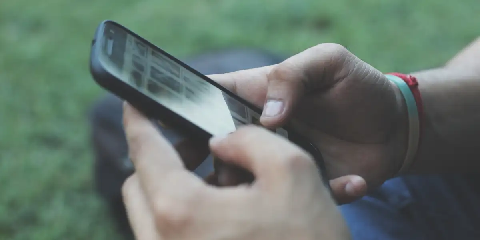Smartphone addiction is a growing problem in today’s society. It affects people of all ages, genders, and backgrounds, and can have serious consequences on physical, mental, and emotional health. But how can you tell if someone is suffering from Smartphone addiction? What are the diagnostic criteria for this condition? This blog post will explore the answer to this question in detail, providing an overview of the diagnostic criteria for Smartphone addiction and some tips on how to identify it in yourself or someone you know.
Preoccupation with Smartphone use
Preoccupation with Smartphone use can be a sign of addiction. Individuals who are addicted to their Smartphone’s may spend excessive amounts of time thinking about using their phones or engaging in phone-related activities click here. They may also feel an intense urge to check their phones regularly, even if there are no new notifications or incoming messages. This preoccupation can interfere with work, school, and personal relationships.
Withdrawal symptoms when not using a Smartphone
Smartphone addiction, also known as Nomo phobia, is becoming increasingly common. This condition is characterized by an excessive dependency on one’s Smartphone. This can lead to symptoms of anxiety and withdrawal when not using a smartphone.
Withdrawal symptoms may include: feeling anxious or irritable, trouble sleeping, sweating, shaking, or difficulty concentrating. These symptoms can be both physical and psychological in nature. They are often similar to those experienced during drug or alcohol withdrawal.
treatment for smartphone addiction typically involves some form of counseling or therapy. In severe cases, medication may be necessary to help manage the symptoms of withdrawal. If you think you may be suffering from this condition, it is important to seek professional help.
Using a Smartphone to escape from negative feelings
It can be difficult to deal with negative emotions. Many people turn to their smartphones as a way to escape from these feelings. While this may provide temporary relief, it can also lead to smartphone addiction.
The diagnostic criteria for smartphone addiction include preoccupation with the device, loss of control over its use, continued use despite negative consequences, and withdrawal symptoms when not using the phone. These symptoms can interfere with work, school, and personal relationships. If you are concerned that you or someone you know may be addicted to their smartphone, please seek professional help.
Tolerance, or the need to use a Smartphone more and more to get the same effect
Most people can tolerate using their smart phones for long periods of time without any negative consequences. However, some people find that they need to use their Smartphone’s more and more to get the same effect casino games. This can lead to problems with work, school, or personal relationships. If you find that you can’t go without your smartphone for even a short period of time, it might be time to seek help.
Loss of interest in other activities
If you’re spending more time on your smartphone than you are on other activities that you used to enjoy, it could be a sign of addiction. You may have lost interest in hobbies, sports, and hanging out with friends. Instead, you find yourself drawn to your phone even when you’re not using it. You may feel the need to check it constantly, and you may get anxious if you can’t access it.
Problems at work, school, or home because of smartphone use
There are a number of problems that can arise from smartphone addiction, both in terms of work and personal life. For example, someone who is addicted to their smartphone may have trouble completing tasks at work or school, as they are constantly distracted by their phone. They may also have difficulty maintaining healthy personal relationships, as they are always on their phone and not present in the moment. Additionally, smartphone addiction can lead to financial problems, as people may spend excessive amounts of money on apps or in-app purchases. Finally, smartphone addiction can also lead to health problems, both mental and physical, as it can cause sleep deprivation and anxiety.
Continuing to use a Smartphone despite negative consequences
Although Smartphone addiction is not yet recognized as a diagnosable disorder, there are certain diagnostic criteria that experts use to identify it. The most important criterion is continuing to use your Smartphone despite negative consequences.
If you find yourself using your Smartphone even when it’s causing problems in your life, that’s a sign that you might be addicted. For example, if you can’t put your phone down even when you’re driving or spending time with family and friends, that’s a red flag. Or, if you keep using your phone even though it’s interfering with work or school, that’s also a problem.
If you’re not sure whether you’re addicted to your Smartphone, ask yourself how much time you spend on it every day. Do you spend more time on your phone than you do talking to people face-to-face? Do you often feel the urge to check your phone even when there are nothing new notifications? If so, then it’s possible that you’re addicted and should consider seeking help.
Diagnosis
There are a number of different ways to diagnose Smartphone addiction. The most common method is to use the Diagnostic and Statistical Manual of Mental Disorders (DSM-5), which is published by the American Psychiatric Association.
The DSM-5 lists nine different criteria that can be used to diagnose Smartphone addiction. These include:
1. Preoccupation with mobile phone use
2. Withdrawal symptoms when mobile phone use is limited or stopped
3. Tolerance, which leads to increased mobile phone use over time
4. Unsuccessful attempts to cut down or stop mobile phone use
5. Loss of interest in other activities as a result of mobile phone use
6. Use of mobile phone in situations where it is considered inappropriate or dangerous
7. continued mobile phone despite negative consequences such as financial problems, relationship problems, or work-related problems
8. inability to control mobile phone usage
9. worsening symptoms over time

